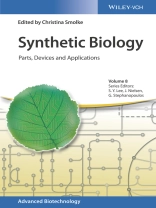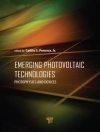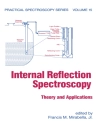A review of the interdisciplinary field of synthetic biology, from genome design to spatial
Engineering.
Written by an international panel of experts, Synthetic Biology draws from various areas of research in biology and engineering and explores the current applications to provide an authoritative overview of this burgeoning field. The text reviews the synthesis of DNA and genome engineering and offers a discussion of the parts and devices that control protein expression and activity. The authors include information on the devices that support spatial engineering, RNA switches and explore the early applications of synthetic biology in protein synthesis, generation of pathway libraries, and immunotherapy.
Filled with the most recent research, compelling discussions, and unique perspectives, Synthetic Biology offers an important resource for understanding how this new branch of science can improve on applications for industry or biological research.
Advanced Biotechnology
Biotechnology is a broad, interdisciplinary field of science, combining biological sciences and relevant engineering disciplines, that is becoming increasingly important as it benefits the environment and society as a whole. Recent years have seen substantial advances in all areas of biotechnology, resulting in the emergence of brand new fields. To reflect this progress, Sang-Yup Lee (KAIST, South Korea), Jens Nielsen (Chalmers University, Sweden), and Gregory Stephanopoulos (MIT, USA) have joined forces as the editors of a new Wiley-VCH book series. Advanced Biotechnology will cover all pertinent aspects of the field and each volume will be prepared by eminent scientists who are experts on the topic in question.
Table of Content
1 – DNA synthesis and genome engineering
1.1 Competition and the Future of Reading and Writing DNA
1.2 Trackable multiplex recombineering (TRMR) and next-generation genome design technologies
1.3 Site-directed genome alteration with engineered recombinases/ZFs
1.4 Rational efforts to streamline the E. coli genome
1.5 Functional requirements in the program and the cell chassis for next generation synthetic biology
2 – Parts and devices supporting control of protein expression and activity
2.1 Constitutive and regulated promoter engineering
2.2 Splicing and Alternative Splicing Impact on Gene Design
2.3 Application of RNA interference
2.4 RNA switches
2.5 Programming Gene Expression by Engineering Transcript Stability Control and Processing in Bacteria
2.6 Standardized functional peptides and their application in superfunctionalizing proteins
3 – Parts and devices supporting spatial engineering
3.1 Metabolic channeling using DNA as a scaffold
3.2 Synthetic RNA scaffolds for spatial engineering in cells
3.3 Sequestered: Design and Construction of Synthetic Organelles
4 – Early applications of synthetic biology: pathways, therapies, and cell-free synthesis
4.1 Cell free protein synthesis: an emerging technology for understanding, harnessing, and expanding the capabilities of biological systems
4.2 Applying Advanced DNA Assembly Methods to Generate Pathway Libraries
4.3 Synthetic Biology in Immunotherapy
05 – Societal ramifications of synthetic biology
Synthetic Biology: From Genetic Engineering 2.0 to Responsible Research and Innovation
About the author
Series editors:
Sang Yup Lee is Distinguished Professor at the Department of Chemical and Biomolecular Engineering at the Korea Advanced Institute of Science and Technology (KAIST). He is currently the Director of the Center for Systems and Synthetic Biotechnology, Director of the Bio Process Engineering Research Center, and Director of the Bioinformatics Research Center. He received numerous awards, including the National Order of Merit, the Merck Metabolic Engineering Award and the Elmer Gaden Award. Lee is the Editor-in-Chief of the Biotechnology Journal and Associate Editor and board member of numerous other journals. Lee is currently serving as a member of Presidential Advisory Committee on Science and Technology (Korea).
Jens Nielsen has a Ph D degree (1989) in Biochemical Engineering from the Danish Technical University (DTU), and after that established his independent research group and was appointed full Professor there in 1998. He was Fulbright visiting professor at MIT in 1995-1996. At DTU he founded and directed the Center for Microbial Biotechnology. In 2008 he was recruited as Professor and Director to Chalmers University of Technology, Sweden. Jens Nielsen has received numerous Danish and international awards including the Nature Mentor Award, and is member of several academies, including the National Academy of Engineering in USA and the Royal Swedish Academy of Science. He is a founding president of the International Metabolic Engineering Society.
Professor Gregory Stephanopoulos is the W. H. Dow Professor of Chemical Engineering at the Massachusetts Institute of Technology (MIT, USA) and Director of the MIT Metabolic Engineering Laboratory. He is also Instructor of Bioengineering at Harvard Medical School (since 1997). He has been recognized by numerous awards from the American Institute of Chemical Engineers (AICh E) (Wilhelm, Walker and Founders awards), American Chemical Society (ACS), Society of industrial Microbiology (SIM), BIO (Washington Carver Award), the John Fritz Medal of the American Association of Engineering Societies, and others. In 2003 he was elected member of the National Academy of Engineering (USA) and in 2014 President of AICh E.
Volume editors of the Synthetic Biology Volume:
Christina Smolke is Professor at Stanford University in the Department of Bioengineering. Before being recruited to Stanford, she was an Assistant Professor in the Department of Chemical Engineering at Caltech. Christina`s research program focuses on developing modular genetic platforms for programming information processing and control functions in living systems. She has pioneered the design and application of RNA molecules that process and transmit user-specified input signals to targeted protein outputs, thereby linking molecular computation to gene expression. These technologies are leading to transformative advances in how we interact with and program biology, providing access to otherwise inaccessible information on cellular state, and allowing sophisticated exogenous and embedded control over cellular functions. Her laboratory is applying these technologies to addressing key challenges in cellular therapeutics, targeted molecular therapies, and green biosynthesis strategies. Christina?s innovative research program has been recognized with the receipt of several awards, including the NSF CAREER Award, Beckman Young Investigator Award, Alfred P. Sloan Research Fellowship, World Technology Network Award in Biotechnology, and Technology Review`s TR35 Award.












